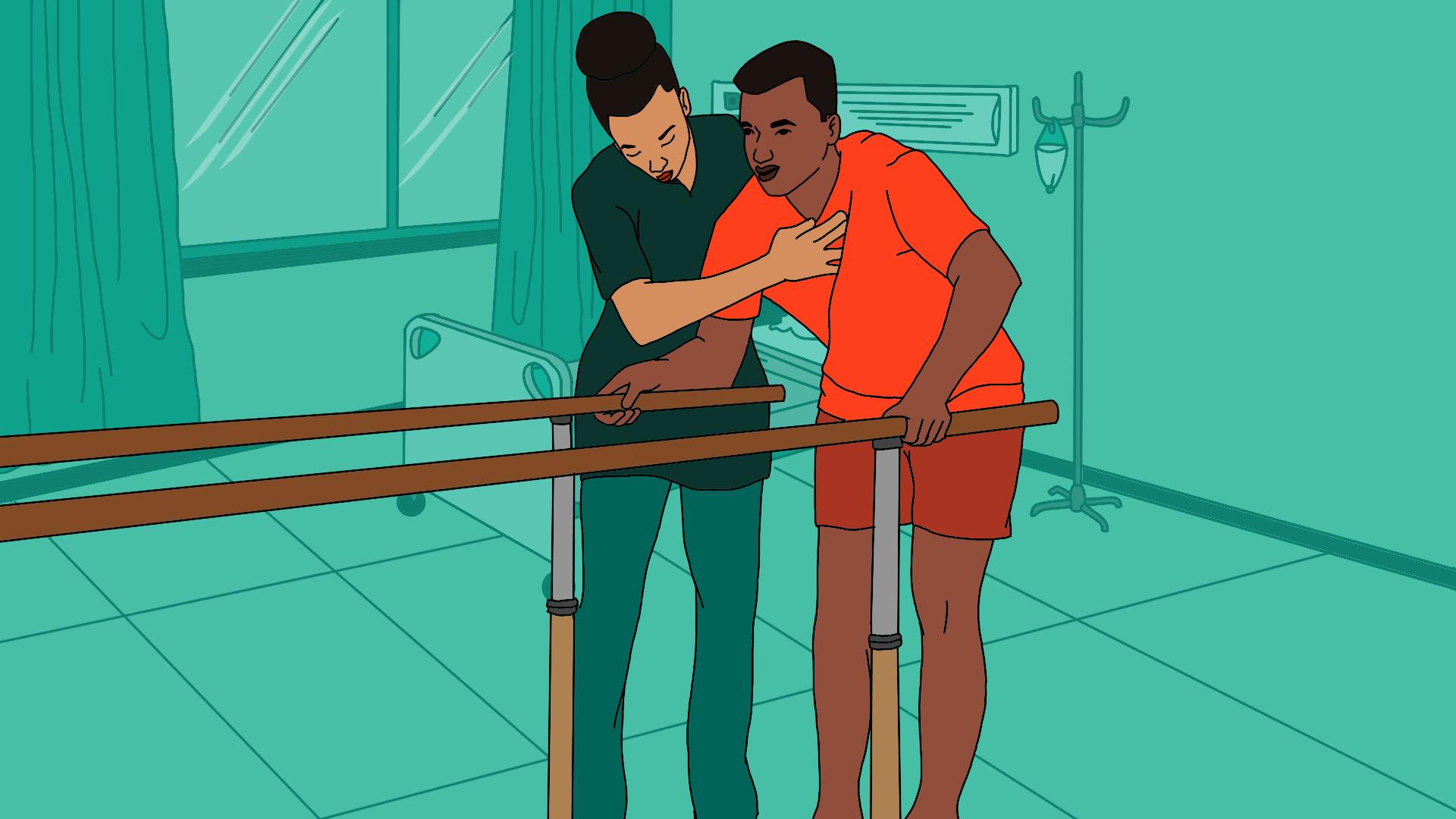🎧 Listen to: Spinal Cord Injury (s)

Spinal Cord Injury
What’s a spinal cord injury?
A spinal cord injury (SCI) damages the spinal cord, which carries messages between the brain and body. This can cause partial or complete loss of movement and sensation below the injury site. Injuries higher up (near the neck) affect more of the body than those in the lower back.
How do spinal cord injuries usually occur?
- Car accidents (most common cause)
- Falls from heights
- Sports injuries (like diving into shallow water)
- Violence (gunshots, stabbings)
- Severe twisting or electrical accidents
What are the symptoms of a spinal cord injury?
- Paralysis or weakness in arms/legs
- Loss of bladder/bowel control
- Numbness, tingling, or pain
- Difficulty breathing or walking
- Unnatural head positioning
What should I do if I suspect a spinal cord injury?
- Call for help immediately!
- Do NOT move the person unless absolutely necessary.
- If breathing stops, perform CPR without tilting the head back.
- At the hospital, CT scans, MRIs, and X-rays help diagnose the injury.
How can I prevent spinal cord injuries?
- Wear seatbelts & protective gear (especially for sports).
- Check water depth before diving.
- Use safety measures at work & home.
Long-term outlook
SCI can cause permanent mobility loss, requiring wheelchairs or assistive devices.
Rehabilitation, physical therapy, and emotional support help improve quality of life.
While challenges exist, many people adapt and lead fulfilling lives.
